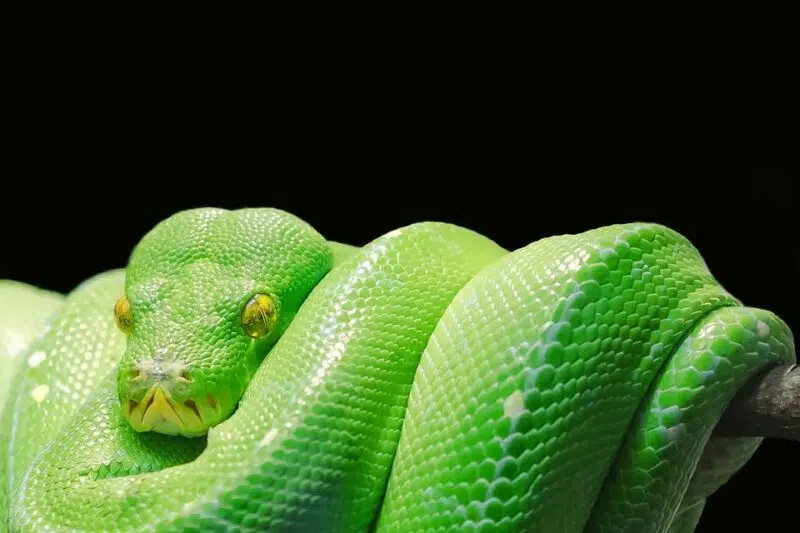Welcome to the Top 10 Deadliest Snakes in The World.
Ophidiophobia is commonly referred to as the fear of snakes. Most individuals have an incredible fear associated with snakes and many reptiles.
Even though the fear seems completely understandable, we must look deeper and ask – are snakes really that dangerous? We’ll deeply dive into the Top 10 Deadliest Snakes in The World in this blog!
Were you aware that there are approximately 3,000 types of snakes worldwide? Of this wide variety, most snakes are non-venomous, only about 600 are poisonous, and some are so deadly that if we go into the details, you may think we’re joking.
Snakes are cold-blooded reptiles and require regulation of their body temperature through simple means. Almost all snakes have scales on their body that trap moisture and reduce friction as the snake slides through the ground.
These hissing reptiles bite about 5.4 million people each year. According to the world health organization, accidents involving snake bites result in around 100,000 deaths annually.
Venomous snakes kill their prey by injecting the venom produced in their modified salivary glands to their target using sharp pointed teeth called fangs.
Interesting Habits
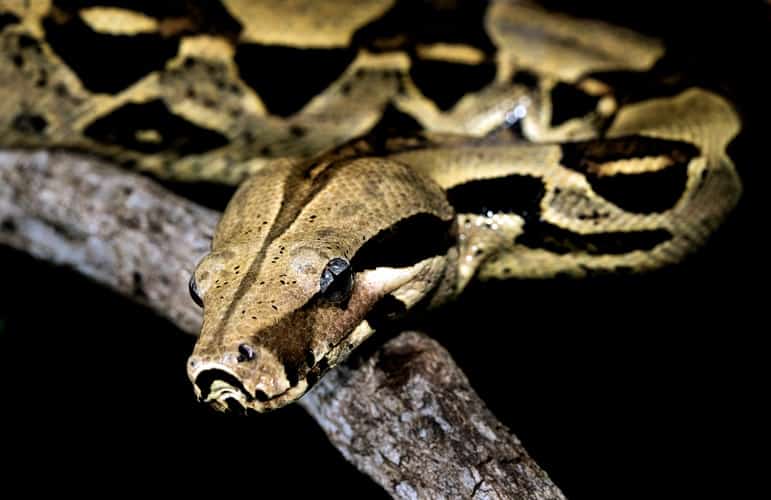
Every few months, the snakes undergo a process of shedding their skin. This process, called ecdysis, allows room for growth and clears all parasites in the body. The snakes rub their bodies against a tree or any other surface and then slither out of their old skin with their head first.
Snakes mostly lay eggs, but some species, including sea snakes, give birth to young offspring like mammals. Very few snakes show considerable affection to their eggs, except for pythons, famous for protecting their eggs until they hatch.
The Snakes Venom
The venom has evolved over the years and can cause intense reactions ranging from paralysis and hemorrhage to tissue death and inflammation, depending on the snake.
Experts discover how poisonous a snake is by carrying out a toxicology test called the lethal dose or LD50. The smaller the number of the deadly dose, the more vicious the snake.
Using this formula, we can determine the most venomous snakes in the world according to the potency and amount of venom.
We have listed below the top ten deadliest snakes that can take down animals and kill humans.
1. Black Mamba
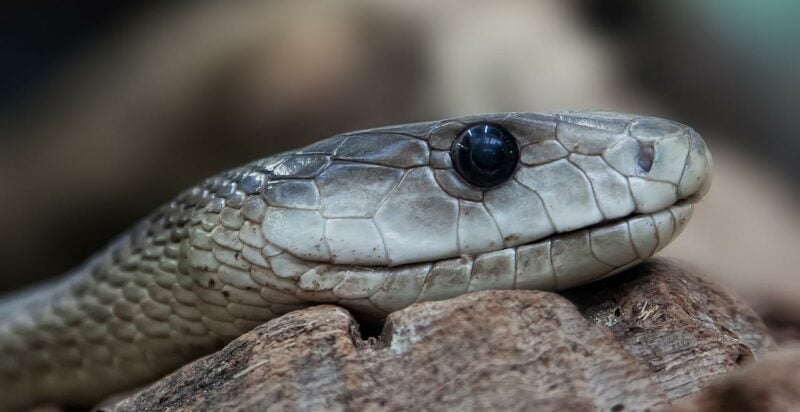
The Black Mamba (Dendroaspis polylepis) stands as Africa’s deadliest snake, possessing a fearsome reputation for its venom, which can kill a person with just two drops.
These snakes inhabit Sub-Saharan Africa and are characterized by their brown bodies but derive their name from the dark black coloration inside their mouths. In the wild, Black Mambas can live for up to a decade, while in captivity, their lifespan extends to roughly twenty years.
With lengths often reaching ten feet, Black Mambas are notably long snakes. They share a remarkable ability with cobras, being able to raise their bodies off the ground. Unlike some snakes that strike once, Black Mambas can deliver rapid multiple bites before swiftly retreating, capable of reaching speeds of 19 miles per hour.
Black Mambas are born with three to four drops of highly lethal venom in their fangs, enabling them to pose a threat to humans right from the start. As they mature, these snakes can store up to 20 drops of venom in each fang.
Upon envenomation, the venom disrupts nerve and muscle junctions, leading to paralysis. Additionally, the venom is cardiotoxic, potentially causing a heart attack.
Symptoms of a Black Mamba bite can appear in less than ten minutes, underscoring the swift spread of its deadly venom within the human body.
Immediate treatment is crucial, as the odds of survival decrease drastically without prompt intervention. While an exact count of Black Mamba-related deaths remains elusive, it is undeniable that this snake is responsible for a significant portion of snake-related fatalities in southern Africa.
2. Fer-de-lance
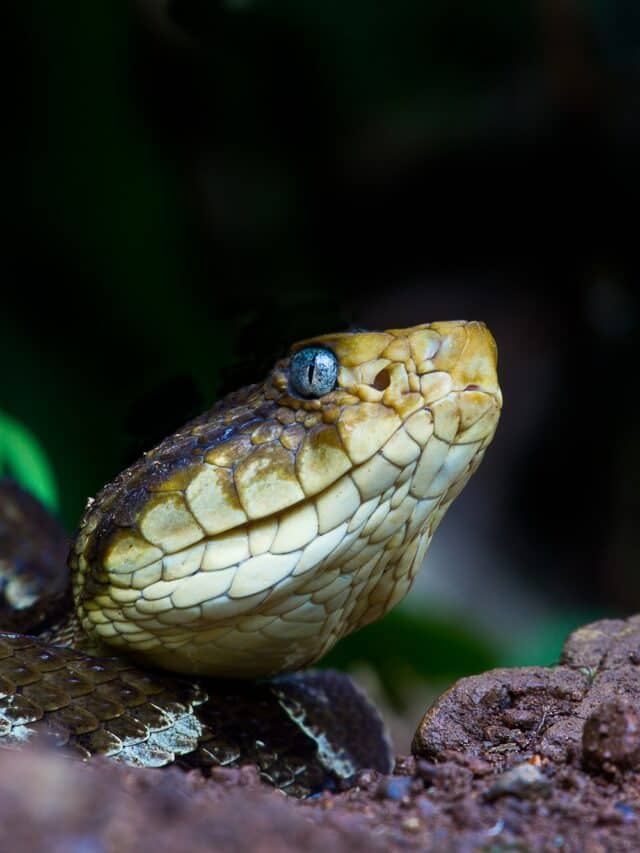
Fer-de-lance (Bothrops asper), called pit vipers, are commonly found in Brazil, Mexico, and central and south America. They are around 8 feet long and weigh approximately 6 kilograms.
This snake is one of the deadliest pit vipers, responsible for most deaths in Central America. An interesting fact related to female fer-de-lance snakes is that they can give birth to almost 90 babies resulting in an increasing population of these snakes.
Want to compare to another snakes bite? A single bite of this pit viper can kill the tissue cells and change the color of a person’s body tissue to black in minutes. This snake’s venom has anti-coagulation properties, meaning that the blood cannot clot, and the person bitten can die of hemorrhage.
A fer-de-lance snake can inject 400-1600 mg of venom in one attack. Please note that killing a mouse only takes 3 mg of poison. This snake can kill an average of 7 healthy human beings in seconds!
3. Boomslang
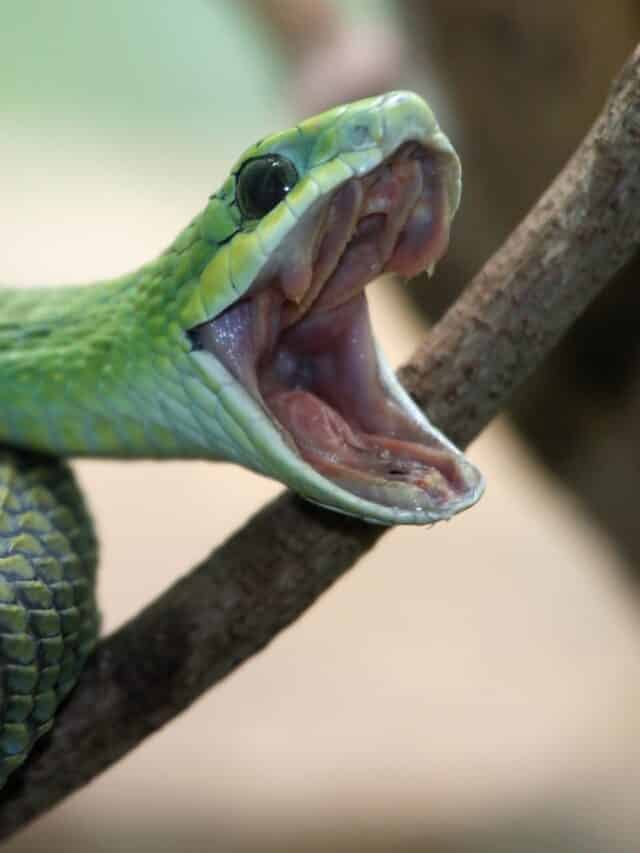
The Boomslang snake, also known as the South African green tree snake, possesses venom that induces internal bleeding in its victims, making it one of Africa’s most venomous rear-fanged snakes.
Notably, a herpetologist named Karl Patterson Schmidt tragically succumbed to internal hemorrhaging in his eyes, lungs, kidneys, heart, and brain approximately 24 hours after being bitten by a Boomslang.
These snakes are found across Africa, including regions such as Swaziland, Botswana, Namibia, and Zimbabwe. Boomslangs have an endearing appearance, sporting a green patterned body, large eyes, and an oval-shaped head with retractable fangs kept folded back when not in use.
The venom of the Boomslang is hemotoxic, leading to both internal and external bleeding in its victims. Those bitten may endure excruciating deaths due to muscle and brain hemorrhages.
As a result of the rapid internal bleeding, blood may begin to seep from various openings like the nostrils and ears. Without timely administration of antivenom, significant blood loss through urine, saliva, and vomit becomes evident, ultimately leading to a fatal outcome for the victim.
The boomslangs bite is unbelievably potent. The lethal dose is so tiny that it only requires a single bite to murder a healthy individual. But do you know what’s even more worrying than the venom from the boomslang? The false sensation of safety it gives to the bitten individual.
Most victims of the boomslangs snake bite think that they have been attacked with a dry pierce, meaning that the snake did not inject any venom into their circulation. However, they are proven wrong once the side effects kick in, and by the time they realize it, it’s already too late—another great one from the Top 10 Deadliest Snakes in The World list.
4. Eastern Tiger Snake
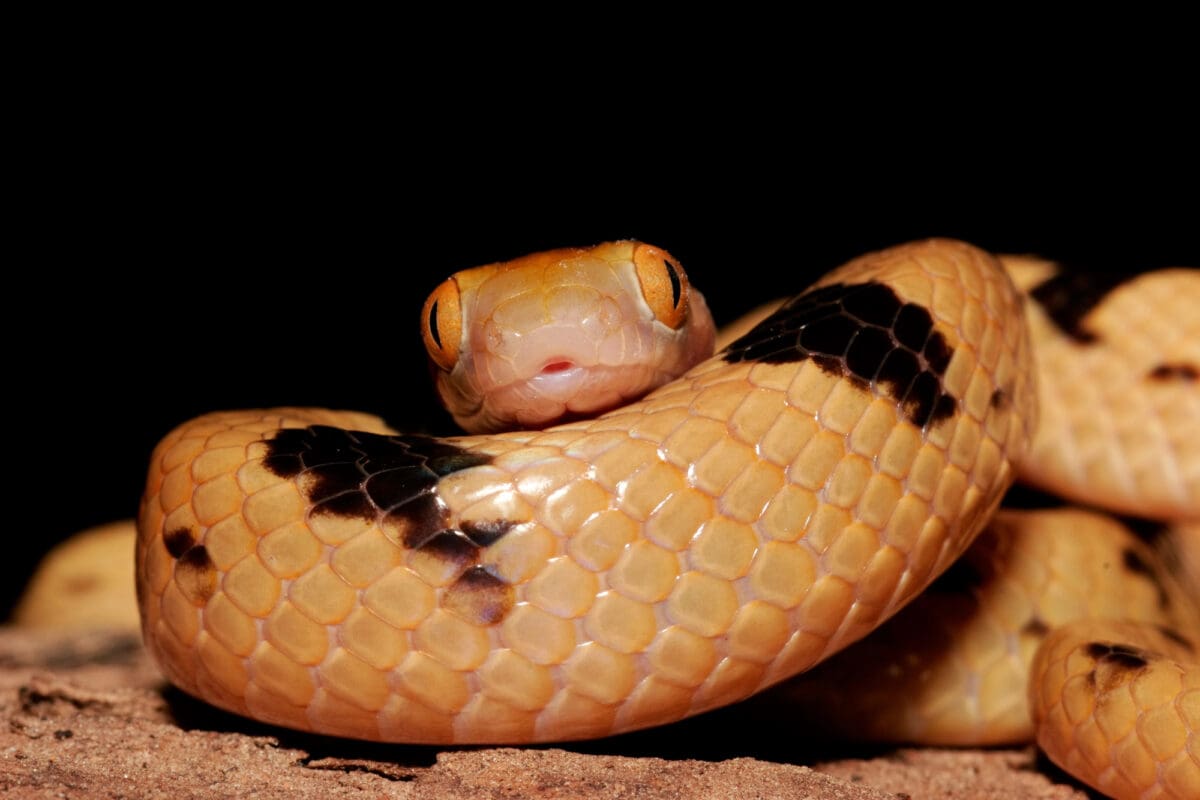
The eastern tiger snake (Notechis scutatus) gets its name because of the distinct yellow and black stripes on its bodywork. This venomous terrestrial snake is primarily present in the mountains and grasslands of southeast Australia.
The Venom of this deadly snake is so dangerous that it can cause death in humans in just 10-20 minutes after a bite. This snake’s venom is also a cause of at least one death annually in the Australian region.
The eastern tiger snake prefers to hunt in populated areas and can kill a human being with just 3 mg of venom in an encounter. Crazy, right?
The venom explicitly targets the human body’s coagulation factors and alters the blood’s ability to clot. Common causes of death include Internal bleeding and cardiac arrest.
5. Saw-Scaled Viper
This snake (Echis carinatus) is a minor representative of the famous snakes in India called the “Big Four.” Russell’s viper, the common krait, and the Indian cobra are associated with the saw-scaled viper.
These four snakes are the reason for the most deaths and injuries from snake bites all over India. The saw-scaled viper has serrated scales that rub together to produce a sizzling sound when threatened.
Once an individual falls prey to this snake, they will quickly develop localized swelling and pain in the bitten area, followed by bleeding.
Like the venom of many other poisonous snakes, the poison of the saw-scaled viper also interferes with the ability to clot blood, leading to internal bleeding and acute kidney failure.
Nine anti-venom types can be administered to the person as soon as possible to ensure survival. Saw-Scaled Vipers have a lifespan of about twenty-plus years. Most of these vipers climb up bushes and trees when it rains and hibernate in the winter.
6. Banded Krait
The banded krait (Bungarus fasciatus) does not show much activity during the daytime but is very fierce and will most likely target other animals when the sun sets.
The venom of banded krait is so deadly that it can paralyze the respiratory muscles and prevent the diaphragm from moving resulting in respiratory distress and failure since it prevents the air from reaching the lungs.
7. Russell’s Viper
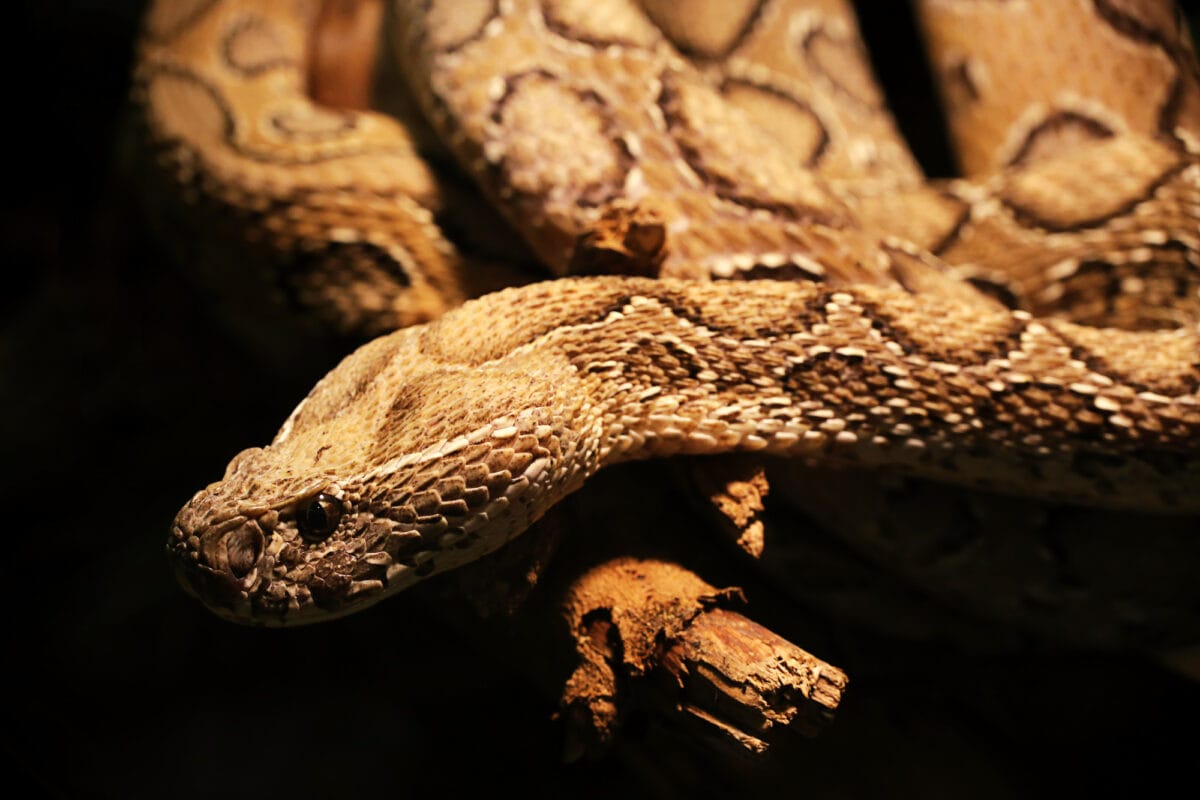
The Russell’s viper (Daboia russelii) is responsible for most deaths reported in India, Sri Lanka, and Burma. According to a study published in Neglected Tropical Diseases, Russell’s viper is considered one of the most deadly among the many true vipers.
This snake is also a cause of the high mortality rate in Sri Lanka among the farmers while they are harvesting their crops because Russell’s viper hides in fields.
The Russel’s viper venom can lead to painful symptoms: including acute kidney failure, multi-organ failure, and death. Symptoms related to coagulation include sharp strokes and, in rare cases, affect the pituitary gland to stop the production of certain hormones.
Localized inflammation and bleeding are usually the first symptoms associated with the bite of Russell’s viper, and the adverse effects vary depending on the intensity of the venom. Over 25% of individuals die from acute kidney failure if they are untreated. Another great snake from the list of Top 10 Deadliest Snakes in The World.
8. King Cobra
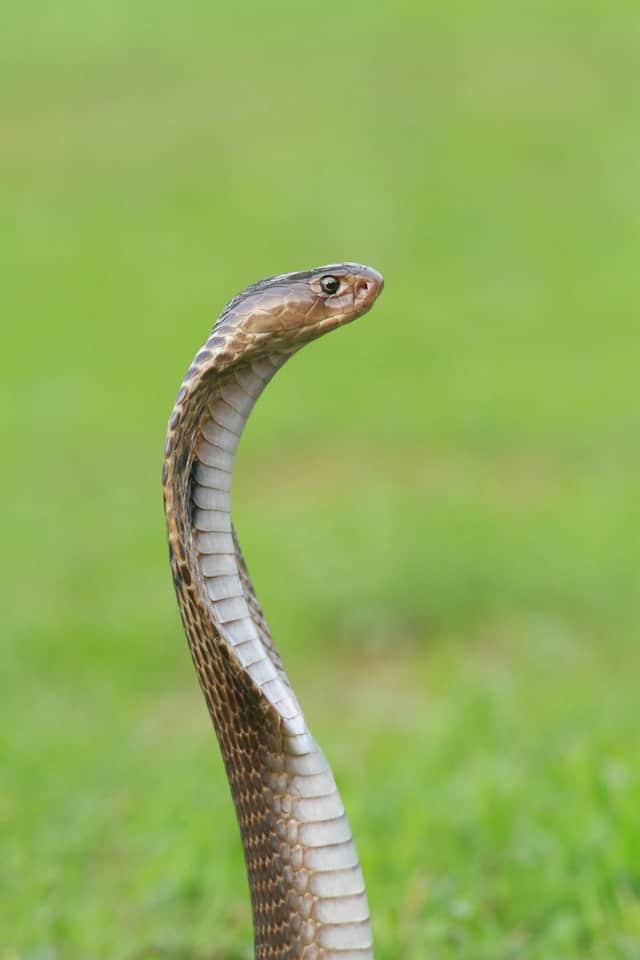
The king cobra (Ophiophagus hannah) is found in Hainan, India, and the Philippines and is the world’s most extensive venomous snake, measuring up to 11-15 feet long.
The king cobra has incredible visual characteristics allowing it to spot a motile object from huge distances. When the king cobra feels intimidated, it uses the unique ribs and the musculature of its neck to flare open the skin around its head.
There is no argument that the king cobra is among the world’s top 3 most venomous snakes, and they deserve this spot for an excellent reason. The king cobra inoculates an average of 600 mg of venom per bite, and their poison is so strong that it can obliterate a minimum of 10 people in a single attack!
The king cobra enlists in the top 10 venomous snakes because of how solid and poisonous its venom is, and the amount of poison it injects with each bite.
This snake attacks with not just one but three to four bites in one go. Just one bite can finish off a human in 20-30 minutes and an adult elephant in a few hours because of its venom’s high amounts of cytotoxins and neurotoxins.
Some fun facts about the King Cobra:
- King Cobras mate with only one partner for life.
- The generic name, Ophiophagus, is derived from Greek and translates to “snake eater.”
- The King Cobras have a meager metabolic rate and can survive for months without food.
9. Coastal Taipan
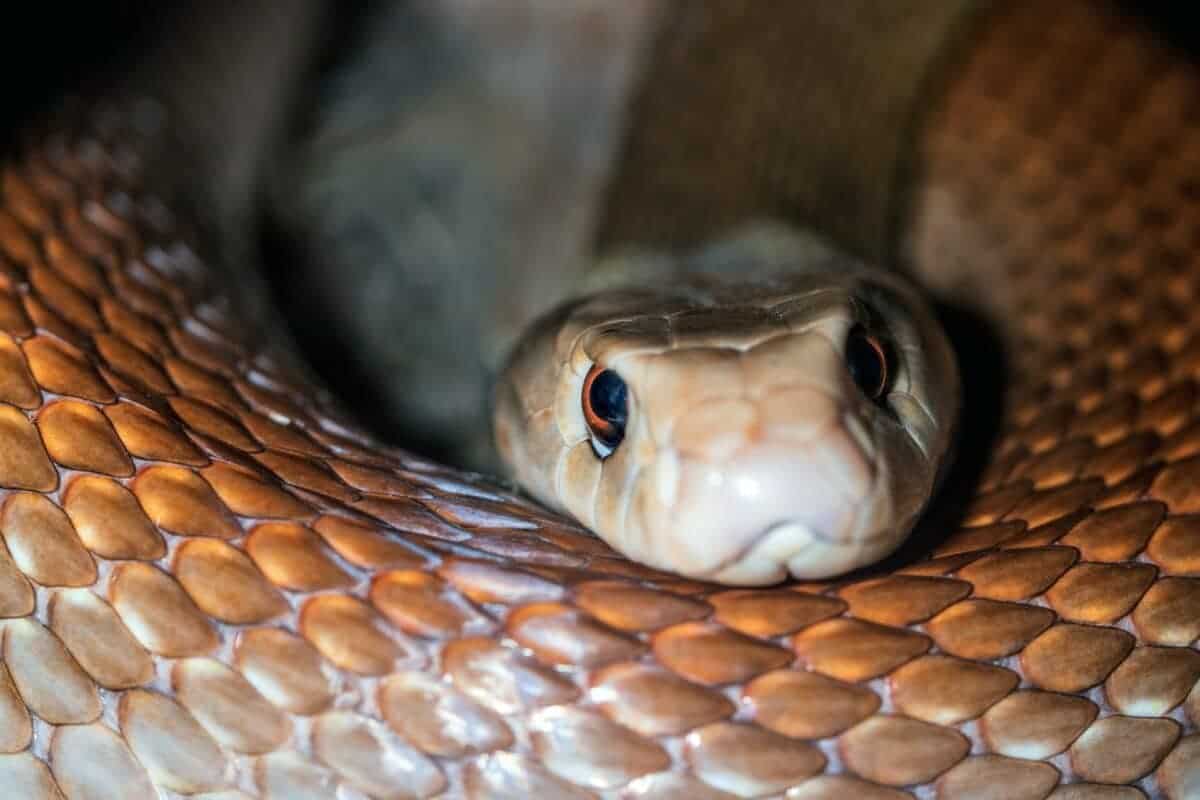
The coastal taipan (Oxyuranus scutellatus) exists in the moist forests of moderate and tropical coastal domains throughout Australia. The coastal taipan can kill approximately fifty-five individuals with a single bite.
Due to its exceptional speed, the coastal taipan snake can lift its whole body off the ground as it attacks fangs-first with accuracy and introduces its venom to its enemy.
The coastal taipan is a snake that one must maintain distance from due to the insufficient lethal dose number and the relatively small amount of venom it injects compared to other venomous snakes.
The neurotoxins found in the venom of the coastal taipan can alter the bodily functions of an individual for the rest of their life.
Even the lucky people that successfully receive medical treatment within 2 hours of being bitten are still at high risk for respiratory paralysis and acute kidney failure.
10. Inland Taipan
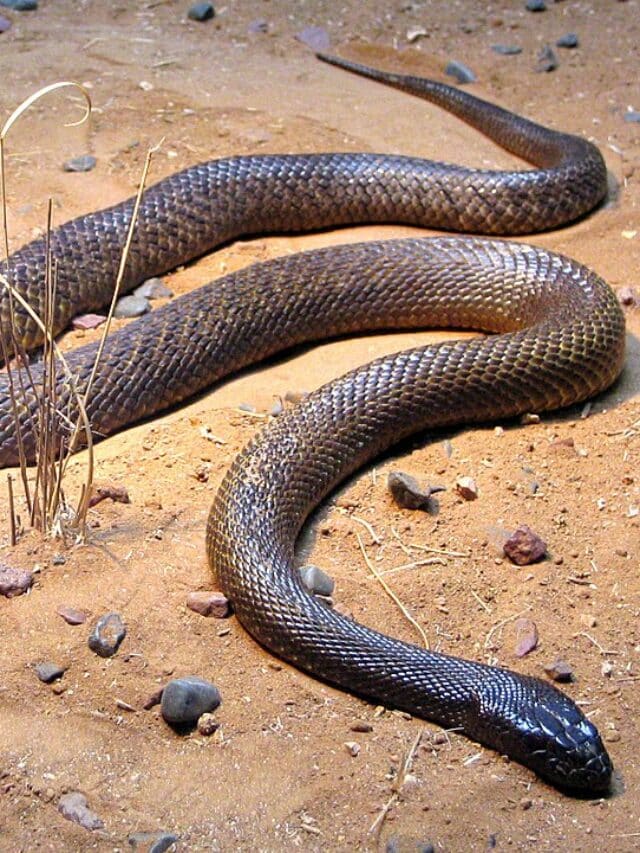
Inland taipans are one of the most lethal snakes on the planet. The inland taipan is the most vicious snake, which means that this snake only requires a tiny bit of venom to kill humans and animals.
They live in the floodplains of Queensland and Australia. Since the inland taipan lives in remote locations, it rarely encounters humans.
When the inland taipan senses threats, it folds its body into a tight S-shape before attacking in one or multiple quick bites. The hyaluronidase enzyme is the main enzyme of the inland taipan’s venom, making it stand out from other snake species.
Many researchers state that the hyaluronidase enzyme accelerates the absorption of toxic compounds throughout the affected individual’s body. This snake has the lowest LD50 rating of all the snakes mentioned in this article.
However, despite the low potency of its venom, this snake is said to be docile. It likes to be left alone and not be disturbed by humans at any cost. If you ever get bitten by this snake, you must seek emergency treatment.
The highly harmful toxins in the inland taipan’s venom can kill a healthy adult individual in less than an hour. Symptoms include paralysis, muscular and neurological damage, internal bleeding, and acute kidney failure.
Inland Taipans mostly kill warm-blooded animals and can alter the color of their skin. This snake is extremely fast and can strike any moving target with hundred percent accuracy.
The Bottom Line on Top 10 Deadliest Snakes in The World
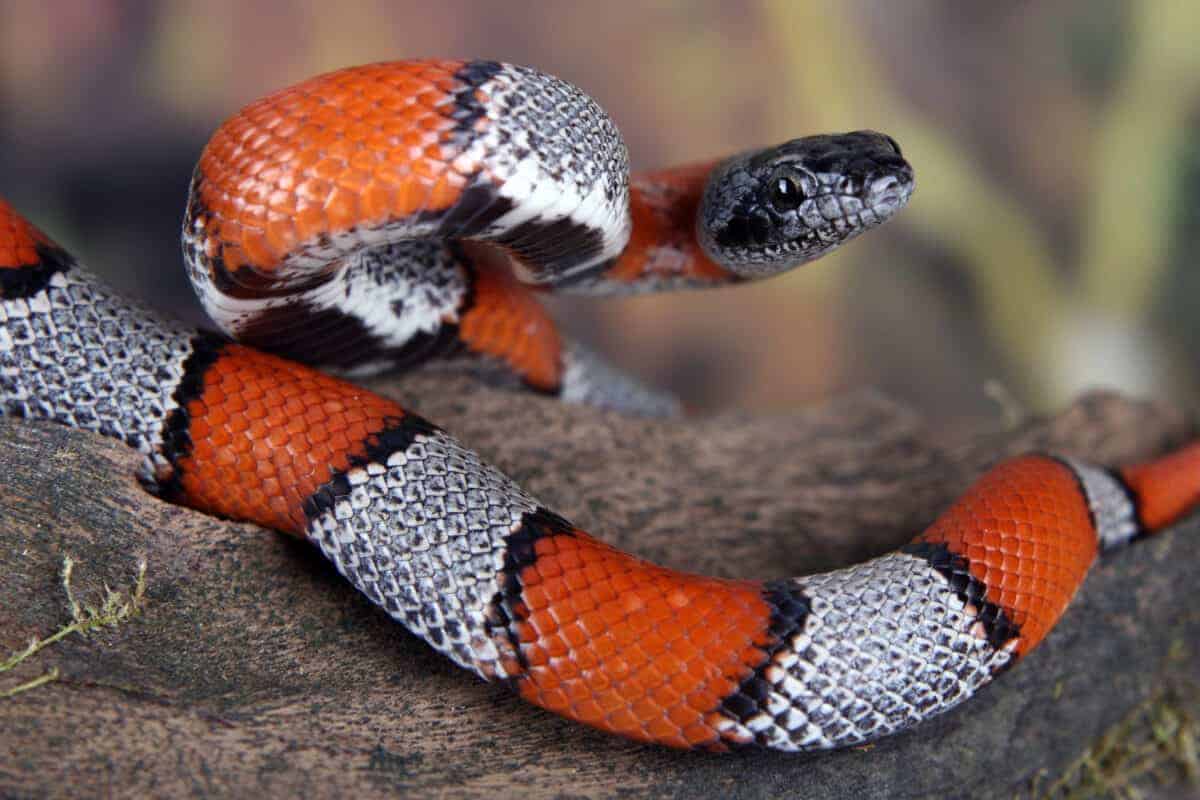
Even though most snakes are non-venomous and cannot cause much harm, humans should maintain a distance from these reptiles because bites from venomous or non-venomous snakes are not something that one would want to experience.
We hope you enjoyed reading this article and have learned much about the different types of venomous snakes you must avoid.
If you enjoyed this blog, you would undoubtedly enjoy the blogs below; check them out! Look at All About Reptiles or check out Top 10 Deadliest Spiders.
Thank you for reading Top 10 Deadliest Snakes in The World.
- Top 5 Rarest Animals in the World - April 15, 2024
- Mongoose Meets One Of The Deadliest Snakes Alive - April 8, 2024
- Watch: Komodo Dragon Swallows Baby Goat In Seconds - March 28, 2024

